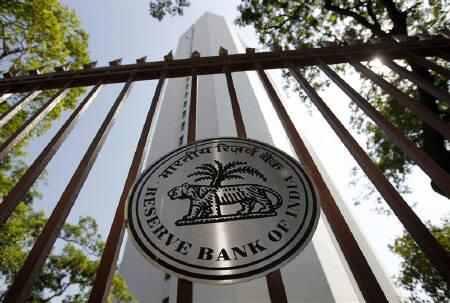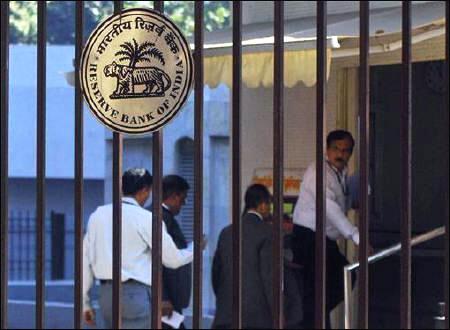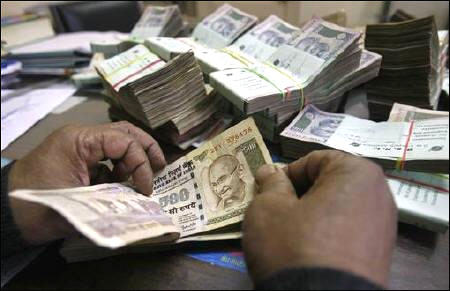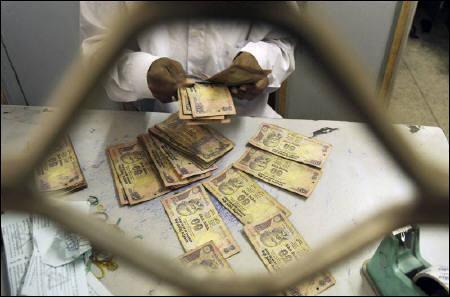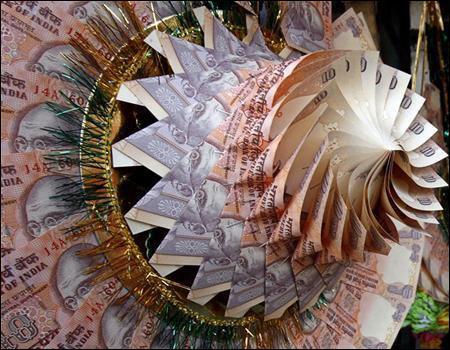 | « Back to article | Print this article |
No change in home, auto loan rates
Contrary to market expectations, the Reserve Bank on Monday kept policy rates unchanged in view of rising inflation and global economic uncertainty, pulling down stocks markets sharply.
Besides, the central bank also kept cash reserve ratio (CRR) or the percentage of deposits that banks have to keep with RBI unchanged at 4.75 per cent.
RBI, in its mid-quarterly review of the monetary policy said the future action would depend upon on external factors, domestic developments and inflationary risks.
Click NEXT to read more...
No change in home, auto loan rates
Experts were expecting the Reserve Bank to cut the lending rate (repo) by at least 0.25 per cent and were also looking forward to further cut in CRR to infuse more liquidity in the financial system.
While the short term lending rate has been kept unchanged at 8 per cent, CRR remains at 4.75 per cent.
In order to help export sector, RBI has raised limit of export credit refinance from 15 per cent of outstanding export credit of banks, to 50 per cent.
This will further augment liquidity and encourage banks to increase credit flow to the export sector, RBI said.
The decision will potentially release additional liquidity of over Rs 30,000 crore, equivalent to about 0.5 per cent of reduction in the CRR, RBI said.
Countering the argument that high interest rate has been the reason behind the record dip in growth, RBI said the real effective bank lending rates are still lower than the high growth period of 2003-2008.
Click NEXT to read more...
No change in home, auto loan rates
"This suggests that factors other than interest rates are the contributing more significantly to the growth slowdown," it said.
The cautious stance comes at a time when pressure has been mounting on the Mint Road mandarins to do something to revive the sagging growth and boost sentiment, which dipped to a nine-year low of 5.3 percent for three months ending March.
The GDP growth for the fiscal 2011-12 also plunged to 6.5 per cent, lower than the 6.7 per cent reported during the peak of post-Lehman collapse credit crisis.
Bankers, led by the country's largest lender State Bank of India, were rooting for a cut in CRR saying it will help in quicker transmission while a slew of think-tanks and analysts were expecting a 0.25 per cent cut in repo rates, given the dismal growth data.
Click NEXT to read more...
No change in home, auto loan rates
In its guidance, RBI said the policy will be guided by the evolving growth-inflation dynamics, with an eye on the external and domestic development that contribute to lowering inflation risks.
RBI said management of liquidity is a key concern and it will continue buy government bonds.
On the rupee fall, it said this should make the country's exports competitive overtime and act as a demand stimulus.
The political inability to pass on elevated crude prices to consumers is resulting in a widening of the current account deficit, and will end up crowding out investment at a time when encouraging investment is imperative from the growth perspective, RBI said.
Click NEXT to read more...
No change in home, auto loan rates
On the troublesome economic situation globally, it said the evolution of the euro-zone crisis which has a bearing on the capital inflows, will be a factor to look out for.
Between March 2010 and October 2011, RBI had cut repo rates a record 13 times, by 350 basis points, in its battle against inflation.
After a gap of three years, on April 17, 2012, RBI had slashed short term lending rate by 0.50 per cent to 8 per cent. It had indicated in the last policy action in April that its space to cut rates further was difficult.
